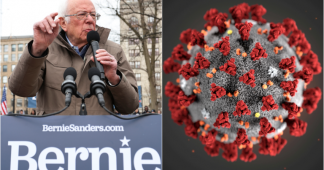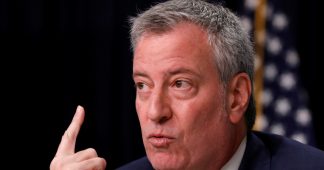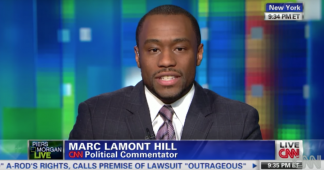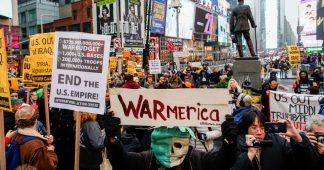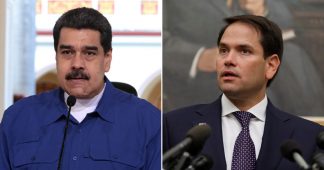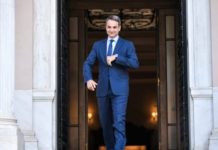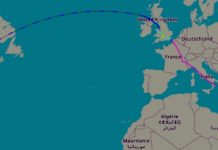by Helen Buyniski
16 Mar, 2020
The coronavirus containment measures the US has (belatedly, reluctantly) taken are revealing enormous fissures in its first-world facade, from legions of hungry schoolchildren to their broke parents left to fend for themselves.
The US puts a lot of effort into maintaining its image as the world’s richest country, but while it may have the world’s highest GDP, near-record levels of income inequality mean that the “American dream” is out of reach for much of the population. Aside from an upper-crust of fantastically wealthy families and the professional class that supports them, much of the US population struggles to make ends meet even in the best of times. And clearly, the coronavirus epidemic does not represent the best of times.
The federal government has been accused of dragging its feet in responding to the epidemic, and not without reason. While other nations rushed into action, President Donald Trump held back from making public statements about the coronavirus out of fear of “spooking the markets.” The Centers for Disease Control didn’t just refuse to use the WHO-developed test for Covid-19 – it actively intervened to stop infectious disease experts in Washington state from testing patients for the disease until the last week of February. Trump waited until last week to declare a public health emergency. Many Americans wondered what was taking their government so long, and some suspected ulterior motives.
Why did the Trump administration reject the WHO coronavirus test? The inexplicable delay (over 2 months) will directly contribute the loss of many American lives. Does Donald Trump or anyone in his orbit have a stake, whether direct or indirect, in Roche?
— Publius (@ThePubliusUSA) March 15, 2020
1. Trump denied the available WHO coronavirus test kit.
2. The 12-week delay cost American lives.
3. After this delay, Oscar Health launches its testing center locator.
4. Oscar Health is a Kushner company.Investigate the shit out of this mobster family. Benghazi style, please.
— Andrea Junker (@Strandjunker) March 15, 2020
States and cities that filled the void left by federal inaction with their own containment measures have often started by closing schools, only to be confronted with just how many American children rely on these educational institutions to feed not their minds, but their bellies. More than 22 million American children – over two thirds of students who eat lunch at their public schools – receive free or reduced-price lunches, a figure that is as shocking as it is ubiquitous. The 14.6 million who eat breakfast at school – and 1.3 million who eat dinner there – are proof these institutions have become de-facto daycare facilities for parents forced to work ever-longer hours or multiple jobs just to keep a roof over their families’ heads.
The reason it took them so long to shut down NYC public schools is because they double as social service agencies.
1 in 10 NYC public school kids are homeless.
1 in 5 children in NYC rely on food pantries and soup kitchens. #nycshutdown
— Morgan Long (@MorganGLongNYC) March 16, 2020
Learning the truth about major cities like New York, where three quarters of a million schoolchildren are poor, a fifth rely on food pantries and soup kitchens for food, 114,000 are homeless, and many rely on their schools not just for lunch but breakfast and dinner, laundry, and even medical treatment, is disillusioning enough. But coronavirus-mandated school closures reveal the problem is not unique to the stereotypically impoverished inner cities. At least 14 states – including notably non-urban Wyoming, Alaska, and South Dakota – have had to secure “congregate feeding” waivers in order to continue serving food to their impoverished students in non-group settings (since feeding them all at once would defeat the purpose of closing the schools) as of last week. It’s difficult enough for the US to defend its refusal to join the rest of the civilized world in offering paid parental (and medical!) leave without this kind of dystopian vision staring it in the face.
Now that state-level containment measures are expanding to cover those children’s parents, Americans are rapidly realizing that the service industries that dominate their economy are incompatible with “social distancing.” From restaurants to retail shops to the mushrooming underclass of “independent contractor” gig workers, these businesses include no contingency plans for employees who’ll quickly use up the few hundred dollars they’re lucky if they have saved. Some states are tiptoeing in the right direction, tempering mandates to restrict business operations with fiscal incentives, but residents need great corrective strides if the public health crisis is not to be compounded by an economic collapse that would make the crash of 2008 look like a stubbed toe.
New York, New Jersey, and Connecticut have adopted the CDC’s mandate of limiting public gatherings to 50 people as of Monday and ordered bars and restaurants to stick to delivery only, joining a growing number of states that have adopted similar “social distancing” measures. New York Governor Andrew Cuomo ordered health insurers to waive copays for Covid-19-related testing and treatment. Some states have paid sick leave, as do some individual companies. But a national paid sick leave policy has only just passed the House as part of a larger coronavirus relief bill, with plenty of hoops left to jump through before it reaches the president’s desk.
My landlord won't care about Coronavirus. He will evict me when I can't pay my rent. There will be rioting in Los Angeles within a week. #LALockdown
— ? Isaac, corn teened commie (@drrtbag) March 16, 2020
All restaurants, bars and venues in NYC have been closed until April 20th. Leaving thousands of New Yorkers, jobless and without pay. Rent has been halted for the next 90 days reportedly. However, HOW is the US Government providing aid for household supplies & food? #NYCShutdown
— indigo (@enfantdelunaa) March 16, 2020
These too little, too late measures barely make a dent in the economic void yawning before the private-sector workers facing an unexpected, open-ended vacation. Many will find themselves in a kind of limbo that isn’t quite a layoff – and doesn’t quite come with access to unemployment benefits. Some cities have swooped in with eleventh-hour grace measures – San Francisco, Seattle, and New York have paused evictions for nonpayment of rent as of Monday – but what happens on the other side of this emergency? Will landlords turn their tenants out into the streets en masse?
The lights have come up on the myths of rugged individualism, and the vision is grim. Rather than promise its citizens a financial rescue package, like the bill, proposed earlier this month by Hawaii congresswoman Tulsi Gabbard, to adopt a form of Universal Basic Income to tide Americans through the coronavirus emergency, the Trump administration has focused its energies on bailing out the financial sector. The Fed dumped a breathtaking $1.5 trillion onto the cratering markets in a single day last week, and traders could barely catch their breath before the red arrows reappeared. It’s clear where Washington’s priorities lie, but the average struggling American no longer has any reason to believe they’re alone in failing economically in an otherwise-functional society. A people deprived of their myths will not remain complacent forever.
Published at https://www.rt.com/usa/483272-coronavirus-american-first-world-myths/
